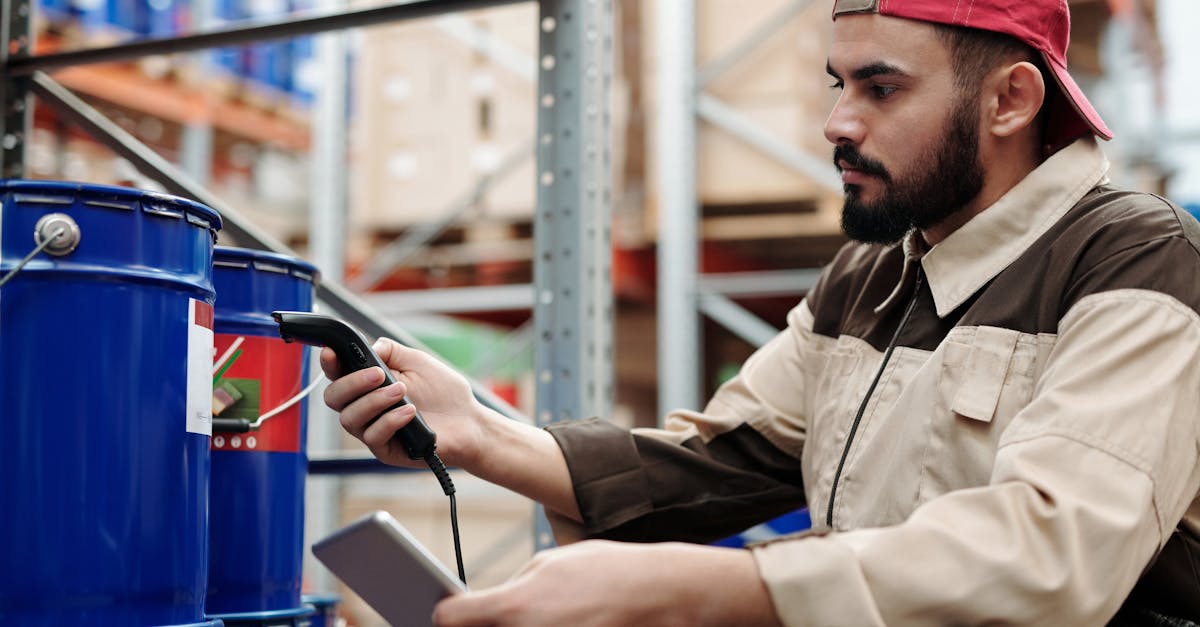
How to Enhance Supplier Relationships in Logistics Companies
Negotiating WinWin Agreements
Successful negotiations in logistics require a focus on creating mutually beneficial agreements. Clarity in communication serves as the foundation for understanding each party's needs and expectations. Establishing common goals encourages collaboration and fosters a sense of partnership. When both sides feel that their interests are acknowledged, they are more likely to invest effort into maintaining the relationship.
Preparation plays a crucial role in developing win-win agreements. Conducting thorough research on the supplier’s strengths and capabilities enables logistics companies to propose realistic terms. Exploring various options and being open to compromises can facilitate a smoother negotiation process. A transparent discussion of potential risks and rewards ensures that both parties are aligned and dedicated to the longevity of their partnership.
Strategies for Successful Negotiations
Effective negotiations hinge on thorough preparation. Understanding the objectives, strengths, and weaknesses of both parties can create a stronger foundation for discussions. Establishing clear goals for what each side hopes to achieve ensures that conversations remain focused. Researching previous agreements and current market conditions provides valuable context. This knowledge enables negotiators to approach discussions with confidence and a clear strategy.
Active listening is another critical aspect of successful negotiations. By genuinely engaging with the supplier’s concerns and needs, logistics companies can foster a collaborative atmosphere. Asking open-ended questions encourages dialogue and demonstrates an interest in the other party's perspective. This approach not only builds rapport but also uncovers potential areas for compromise. Maintaining a respectful tone throughout the negotiation is essential for cultivating trust and ensuring that both sides feel valued.
Training and Development Opportunities
Investing in training and development can significantly strengthen partnerships between logistics companies and their suppliers. Offering tailored workshops or training sessions helps suppliers to better understand the logistics company's processes and expectations. This shared knowledge fosters a culture of collaboration. When suppliers are well-equipped with the necessary skills and information, the entire supply chain benefits from increased efficiency and reduced errors.
Moreover, professional development opportunities can motivate suppliers to enhance their own capabilities. Providing access to resources such as online courses or industry certifications creates an environment where suppliers feel valued and invested in. This not only boosts their performance but also aligns their goals with those of the logistics provider. By encouraging continuous improvement, both parties can achieve enhanced competitiveness in the marketplace and better adaptability to changing demands.
Upskilling Suppliers for Mutual Benefit
Investing in the training and development of suppliers can create a significant advantage for logistics companies. By providing workshops and seminars, firms can help suppliers understand emerging industry trends and regulatory changes. This not only enhances their operational capabilities but also aligns their objectives with those of the logistics company, leading to improved service quality and efficiency.
Collaboration in training initiatives fosters a sense of partnership and ensures that suppliers are well-equipped to meet the demands of the ever-evolving market. Skills such as effective inventory management, quality control measures, and technology utilisation can be pivotal. As suppliers upgrade their skills, they contribute more meaningfully to the logistics process, ultimately benefiting the entire supply chain.
Leveraging Technology
Incorporating technology into supplier relationship management can significantly streamline operations and improve communication. Advanced platforms enable real-time data sharing, allowing both parties to access crucial information regarding inventory levels, forecasts, and order statuses. This transparency fosters trust and facilitates more proactive decision-making, ultimately leading to better operational efficiency.
Utilising collaborative tools and supply chain management software enhances engagement between logistics companies and their suppliers. These technologies provide dashboards that monitor performance metrics, track compliance, and highlight areas for improvement. Such insights empower businesses to work collectively towards shared goals, strengthening the partnership and leading to improved outcomes for both sides.
Tools for Enhancing Supplier Collaboration
The integration of advanced technological tools can significantly improve collaboration between logistics companies and their suppliers. Cloud-based platforms enable seamless communication, allowing for real-time updates on orders, inventory levels, and potential disruptions. This transparency fosters trust, as both parties can access the same information simultaneously. Furthermore, employing collaborative software can streamline processes, from initial negotiations to the execution of contracts, ensuring that all stakeholders remain aligned throughout the supply chain.
Incorporating data analytics into supplier management can yield valuable insights into performance and areas for improvement. Analytics tools can track key performance indicators, helping logistics companies identify trends and assess supplier reliability. Additionally, automated systems for monitoring compliance and quality control can enhance accountability. By leveraging these technologies, organisations can create a more efficient and responsive supply chain, ultimately leading to stronger partnerships with their suppliers.
FAQS
What are the key elements of a win-win agreement in supplier negotiations?
Key elements of a win-win agreement include clear communication, mutual benefits, understanding each party's needs, flexibility, and a focus on long-term relationships rather than short-term gains.
How can training and development opportunities benefit both logistics companies and their suppliers?
Training and development opportunities enhance suppliers' skills, improving their efficiency and reliability, which in turn benefits logistics companies through better service delivery, reduced errors, and stronger partnerships.
What types of technology can be leveraged to improve supplier relationships?
Technology such as Supplier Relationship Management (SRM) systems, cloud-based collaboration tools, and data analytics platforms can enhance communication, streamline processes, and provide valuable insights for better decision-making.
How can I identify the right training programmes for my suppliers?
Identify training programmes by assessing suppliers' current capabilities, understanding industry trends, and consulting with suppliers to determine their specific needs and gaps in skills.
What role does communication play in enhancing supplier relationships?
Communication is crucial in enhancing supplier relationships as it fosters transparency, builds trust, allows for the exchange of feedback, and helps to quickly address any issues that may arise in the partnership.
Related Links
How to Implement Effective Supplier Relationship Management StrategiesRoundup of Effective Supplier Relationship Management Techniques
Review of Top Supplier Relationship Management Software
10 Best Practices for Supplier Relationship Management
The Historical Evolution of Supplier Relationship Management